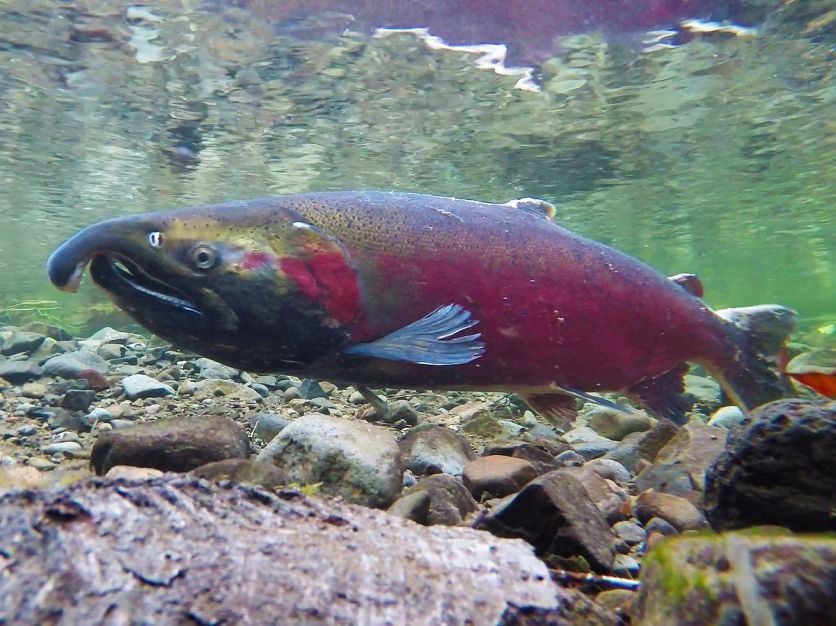Federal wildlife agencies would consult with the Environmental Protection Agency on the effect of pesticides on endangered species in a much different way, if the farm bill introduced by House Agriculture Chairman Mike Conaway, R-Texas, becomes law.
The language had been sought by the crop protection industry, which applauded its inclusion.
CropLife America said the new provision is much needed. Beau Greenwood, the group’s executive vice president, said the language fixes what he called a “regulatory glitch” that has extended the registration review process by years.
Greenwood also said that the bill’s changes to the Federal Insecticide, Fungicide, and Rodenticide Act are “intended to continue the cooperative partnership between EPA and the services on implementation of the ESA.”
The bill gives the EPA administrator the power to approve pesticide registrations without going through the ESA’s consultation process, which requires the Fish and Wildlife Service (FWS) and/or the National Marine Fisheries Service (NMFS) to assess whether actions by federal agencies would jeopardize the continued existence of threatened or endangered species.
Instead, EPA would ask FWS and NMFS to provide their “best available and authoritative information and data” on listed species, which the administrator would then review before making his or her own determination. EPA would have to consult with the services if asked by an applicant for a registration to do so.
But the bill’s enactment is threatened by the endangered species language, Bob Dreher, Defenders of Wildlife’s senior vice president of conservation programs, told Agri-Pulse.
“It’s an enormous substantive retrenchment of the Endangered Species Act,” Dreher said. “If it stays in, it will bring the farm bill down.”
Other environmental groups also severely criticized the proposed language. Rebecca Riley, senior attorney at the Natural Resources Defense Council, said that “attacking the Endangered Species Act, which protects farming communities from dangerous chemical exposures, is the exact opposite of what the farm bill is supposed to do.” And the Center for Biological Diversity called the endangered species provision “one of the most significant and damaging changes to the (ESA) in the past 40 years.”
Lawsuits filed by environmental group have resulted in settlements requiring EPA to review the effects of certain pesticides, such as diazinon, malathion and chlorpyrifos on listed species. For example, EPA is required to complete nationwide effects determinations for atrazine, simazine, propazine and glyphosate by 2020.
A Biological Opinion released by NMFS in January found that chlorpyrifos, malathion and diazinon harm ESA-listed salmon species and Southern Resident killer whales, or orcas. Among the options to address the impacts: buffer zones, spray reduction technologies and pesticide stewardship programs.
The pesticide industry, however, has objected to the data and methods used by FWS and NMFS to determine effects of their products on imperiled species. In January, EPA, the Interior Department and Commerce Department agreed to set up a working group to address the ESA pesticide consultation process.
The bill also would extend deadlines for EPA to complete endangered species reviews. For already registered pesticides, EPA would not have to finish its reviews until 2026 or 2033. For pesticides registered after the bill is enacted, EPA would have four years from the registration date to complete its species-related reviews.
The Conaway bill also includes the Pesticide Registration Improvement Act that cleared the House last year. The House PRIA bill has a seven-year authorization, while the Senate bill, which cleared the Senate Agriculture Committee but never came to a vote because of a hold by Sen. Tom Udall, D-N.M., has a three-year timeframe.
Under PRIA, manufacturers pay registration and maintenance fees that account for about one-third of the EPA Office of Pesticide Programs’ budget. Despite an all-out push by pesticide manufacturers, the omnibus spending bill that Congress passed last month reauthorized PRIA at its current funding levels.
For more news, go to www.Agri-Pulse.com.


